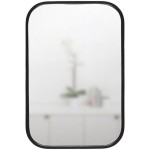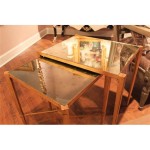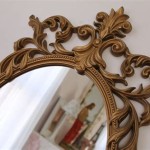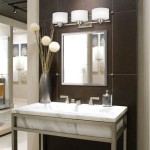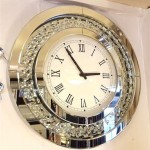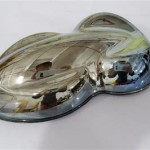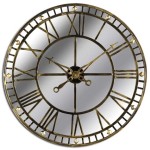Do-It-Yourself Mirror Framing: A Beginner's Guide to Aesthetic Enhancement
Mirrors, indispensable elements of any home, not only reflect our appearance but also contribute to the overall décor. A well-framed mirror can elevate a simple piece of glass into a captivating centerpiece, adding character and style to any room.
While framing a mirror may seem daunting to beginners, it is a surprisingly accessible DIY project with a bit of preparation and careful execution. This guide will walk you through the essential steps involved in creating a custom mirror frame, empowering you to transform your mirrors into stunning works of art.
1. Materials and Tools
Before embarking on your mirror framing journey, gather the necessary materials and tools. These include:
- Mirror
- Picture frame molding
- Miter saw or miter box
- Wood glue
- Clamps
- Finishing nails or brad nailer
- Hammer or nail gun
- Measuring tape or ruler
- Sandpaper or sanding block
- Stain, paint, or wood finish (optional)
2. Measuring and Cutting
Precise measurements are crucial for a seamless fit. Measure the width and height of the mirror and add twice the desired frame width to each dimension. This calculation will determine the length of the molding required for each side of the frame.
Using a miter saw or miter box, cut the molding to the calculated lengths at 45-degree angles. Ensure the angles are crisp and accurate for a clean joint at the corners.
3. Assembling the Frame
Apply a thin layer of wood glue to the mitered edges of the molding. Align the pieces with the mirror in the center and gently clamp them together. Allow the glue to set for several hours or overnight.
Once the glue is dry, reinforce the joints with finishing nails or a brad nailer. Countersink the nails slightly below the surface of the molding for a smooth finish.
4. Finishing
Sand the frame lightly to remove any rough edges or imperfections. This will prepare the surface for staining, painting, or applying a wood finish.
If desired, apply a stain or paint to the frame to match your décor. Allow the finish to dry completely before hanging the mirror.
5. Hanging the Mirror
Determine the desired placement for the mirror and mark the hanging points. Use a level to ensure the mirror hangs straight. Secure the mirror to the wall using picture hanging hardware that can support the weight of the mirror and frame.
Additional Tips:
- Choose a molding with a profile that complements the style of the mirror and your décor.
- Consider using different molding sizes and shapes to create a unique and eye-catching frame.
- Experiment with different stains or finishes to achieve the desired look. You can distress the frame for a rustic effect or apply a high-gloss finish for a modern touch.
- Enhance the mirror's functionality by adding a shelf or hooks to the frame to create extra storage or hanging space.
Conclusion:
Do-it-yourself mirror framing is a rewarding project that allows you to customize your home décor and showcase your creativity. By following the steps outlined in this guide, you can create a stunning framed mirror that reflects your style and elevates the aesthetics of any room.
Whether you choose a sleek and modern design or a more intricate and traditional look, the process of mirror framing is surprisingly accessible and enjoyable.

Mirror Frame Diy How To Update A Basic Bathroom Our Faux Farmhouse
:max_bytes(150000):strip_icc()/bloomingdiyer-372b1cae2a6c43af917f3bea506c11da.jpg?strip=all)
20 Diy Mirror Frame Ideas To Inspire Your Next Project

Diy Stick On Mirror Frame Sawdust Sisters

Easy Driftwood Mirror The Wood Grain Cottage

20 Fantastic Diy Mirror Frame Ideas A Cultivated Nest

Diy Bathroom Mirror Frame Without Removing Clips Her Happy Home

30 Diy Mirror Frames Scratch And Stitch

30 Diy Mirror Frames Scratch And Stitch

Mirror Frame Diy How To Update A Basic Bathroom Our Faux Farmhouse
:max_bytes(150000):strip_icc()/alahome1-a879d69e31be4a9a9ae522028c12926d.jpg?strip=all)
20 Diy Mirror Frame Ideas To Inspire Your Next Project

